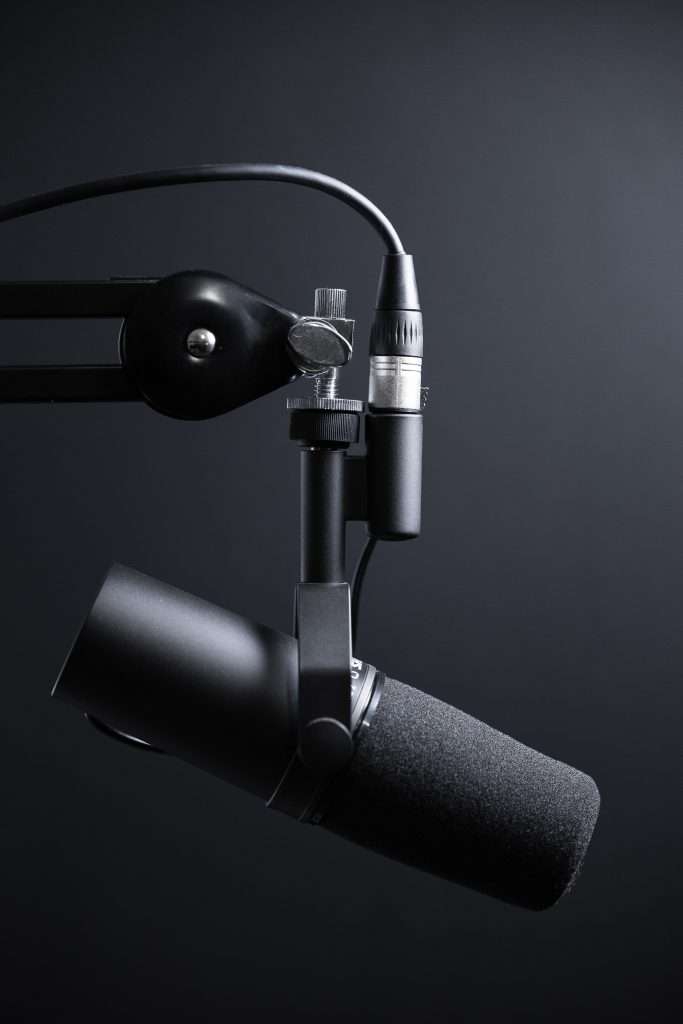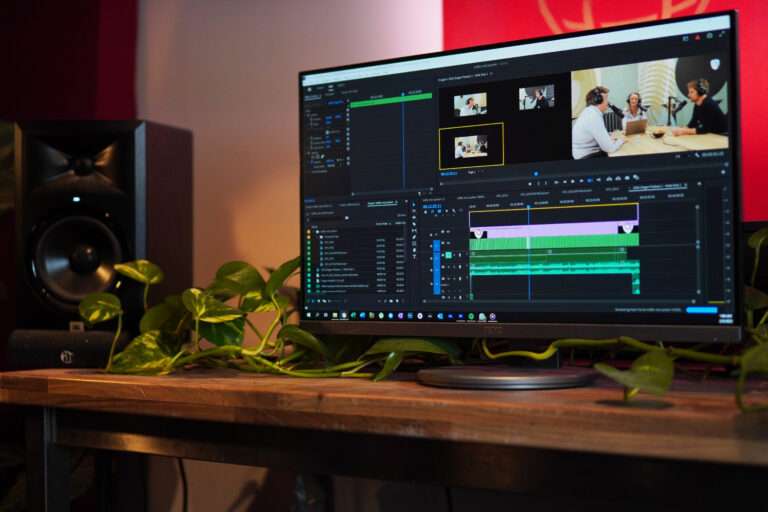When launching a podcast, it’s easy to get caught up in graphics, marketing, or your guest list. But there’s one thing your listeners care about most—and it’s often overlooked: podcast audio quality.
The good news? You don’t need a fully equipped studio to deliver great sound. Small, thoughtful upgrades can dramatically transform the listening experience. A simple pop filter reduces harsh “P” and “S” sounds. Removing long pauses and background noise keeps conversations smooth. Balancing the volume between speakers prevents those frustrating moments when listeners scramble to adjust their headphones.
Even placing a foam panel behind your microphone can help eliminate echo, making your voice warmer and more professional. These may seem like minor changes, but for your audience, they make the difference between hitting “next episode” or hitting “unsubscribe.”
Looking for Podcast Engineers?
Why Podcast Audio Quality Is Essential
Think about your typical listener. Chances are, they’ve already heard several podcasts this week. They hit play on your show, enjoy your catchy intro music—and then the episode begins.
But what if they hear:
- Muffled voices
- Awkward silences
- Sudden volume jumps
- Distracting mouth noises
These small production flaws instantly break immersion. Whether they realize it or not, listeners compare your sound quality to every other show in their queue. If yours doesn’t feel as polished, they’ll stop listening—no matter how great your content is.
Why Audio Quality Comes Before Video in a podcast
Video can help grow your podcast on YouTube and social media—but audio is what keeps listeners coming back. Most podcast fans tune in while multitasking: driving, walking, working, or relaxing. They’re not fully watching your video feed—they’re listening.
If your audio is harsh, noisy, or inconsistent, they’ll switch to something better. Crisp 4K video won’t save a podcast with poor sound quality. That’s why investing in a great microphone, clean editing, and basic room treatment will always give you the biggest return.
The Shure SM7B: The Best Microphone for Podcasts
If you’re ready to invest in a professional microphone, start with the Shure SM7B dynamic mic. This mic has been an industry standard for decades—and for good reason.
Why Podcasters Love the SM7B:
- Warm, natural, broadcast-quality sound that flatters almost every voice
- Smooth frequency response that minimizes harshness
- Built-in shock mount and pop filter, reducing mechanical noise and plosives
- Superior background noise rejection, thanks to its dynamic design—perfect for untreated rooms
- Legendary durability, trusted by leading podcasters, streamers, and recording studios worldwide
Unlike condenser microphones, the SM7B excels at isolating your voice while rejecting unwanted room noise. Whether you’re recording in a professional studio, a home office, or a city apartment, your voice will sound clean, present, and professional.

Other Simple Ways to Improve Your Podcast Audio Quality
Even if the SM7B is out of budget, these tips will instantly upgrade your sound:
- Test Before You Record: Always run a mic check to catch wrong settings or audio glitches.
- Record in the Same Space: A consistent, quiet room helps your sound stay uniform across episodes.
- Invest in a Decent Mic: Affordable dynamic mics like the Samson Q2U or ATR2100x vastly outperform built-in laptop mics.
- Speak Clearly and Naturally: Take your time, enunciate, and use vocal variety to stay engaging.
- Wear Headphones: You’ll catch echo, mic bumps, or background noise before they ruin your recording.
- Edit the Filler: Trim long pauses, “ums,” and background noise to respect your listener’s time.
- Balance Background Music: Keep it subtle so it enhances—not overpowers—your dialogue.
- Use Chapter Markers: Make your content easier to navigate on podcast platforms that support them.
Polish Your Audio: Normalize & Balance Levels
Nothing kills a podcast vibe like inconsistent audio levels. Tools like Auphonic, Adobe Podcast Enhance, or leveling plugins in your DAW (Digital Audio Workstation) will automatically balance your volume and clean up the final mix.

Or... Eliminate the Technical Hassle: Let a Podcast Engineer Handle it for You
Want your podcast to sound polished and professional without learning recording audio and editing yourself? A podcast engineer can take care of the technical details—so you can focus on creating great content.
